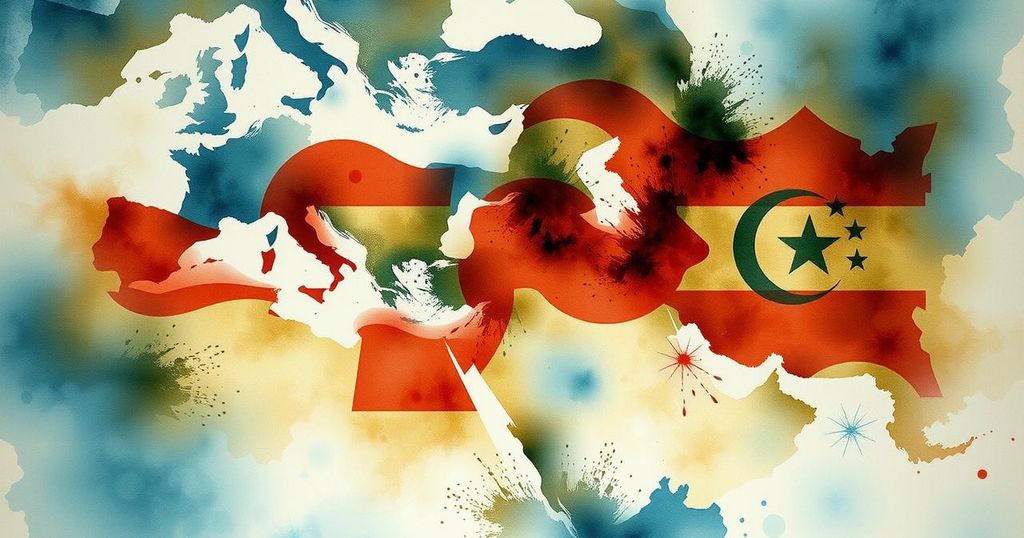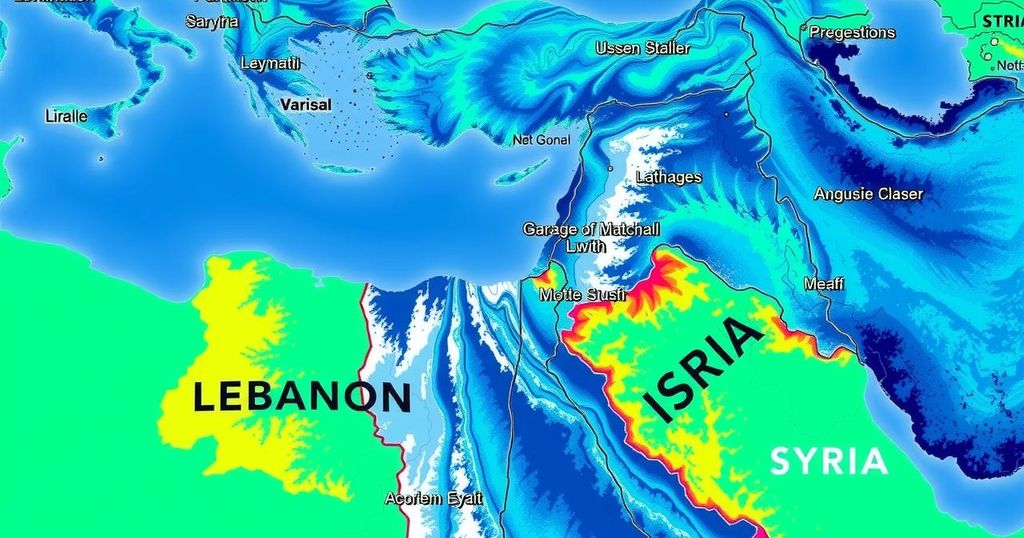Netanyahu Addresses U.N. on Gaza Conflict: Peace or Iranian Aggression?
In his address to the U.N. General Assembly, Israeli Prime Minister Netanyahu presented a stark contrast between the potential for peace through collaboration in the Middle East and the threat of Iranian-led aggression. He defended Israel’s military conduct amidst allegations of civilian casualties from Palestinian President Abbas, who outlined a humanitarian crisis in Gaza. Discussions highlighted the complexities of achieving a resolution in the ongoing conflict, with an emphasis on accountability and support from the international community.
During his address to the U.N. General Assembly, Israeli Prime Minister Benjamin Netanyahu presented a stark dichotomy facing the international community: the potential for peace in the Middle East or the imminent threat posed by Iranian aggression. Netanyahu articulated that the pathway to a peaceful resolution involves the creation of a robust infrastructure that unites Jewish and Arab nations, promoting prosperity through connectivity between Asia and Europe. Conversely, he warned that failure to pursue peace would lead to an ominous “arc of terror” orchestrated by Iran, affecting the entire Middle East from the Indian Ocean to the Mediterranean. He illustrated these concepts with maps depicting the contrasting futures. Netanyahu, addressing earlier criticisms leveled against Israel, emphasized the nation’s quest for peace, stating, “Israel seeks peace. Israel yearns for peace. Israel has made peace and will make peace again.” His comments came on the heels of Palestinian President Mahmoud Abbas’s speech, wherein Abbas accused Israel of committing atrocities in Gaza. He highlighted the humanitarian toll of the ongoing conflict, noting that estimates suggest 40,000 casualties in Gaza, of whom more than 15,000 are children. In response to these allegations, Netanyahu defended the Israeli Defense Forces, asserting that no military operation has gone to such lengths to prevent civilian casualties as that of Israel. “No army has made the effort that Israel’s army has to minimize civilian casualties,” he declared, mentioning measures such as dropping flyers and sending text messages to alert civilians of impending danger. The Israeli Prime Minister further denounced Hamas, portraying them as puppets of Iran and labeling them as “savage enemies” responsible for the deaths of approximately 1,200 individuals, as well as the kidnapping of 251 hostages. He affirmed Israel’s continued resolve, stating emphatically, “If you strike us, we will strike you,” thereby indicating Israel’s preparedness to respond to Iranian provocations. Additionally, Netanyahu discussed conflicts with Hezbollah and Houthi forces, underscoring the multi-faceted nature of Israel’s security challenges. In concluding his remarks, he urged unanimous global support to thwart Iran’s nuclear ambitions and called for the re-implementation of international sanctions against Tehran. In contrast, President Abbas’s address proposed a comprehensive cease-fire and the establishment of international protections for Palestinians, asserting that the international community must hold Israel accountable for its actions. He also criticized the United States for obstructing Palestinian statehood within the U.N.
The ongoing conflict between Israel and the Palestinian territories has led to an accumulation of tensions and animosities, often articulated in the context of global forums such as the United Nations. The speeches of both Netanyahu and Abbas at the U.N. General Assembly reflect deep-seated grievances and differing narratives regarding the violence in Gaza. This assembly serves as a crucial platform for leaders to advocate their positions and seek international support for their respective causes amid escalating regional turmoil and humanitarian crises.
Netanyahu’s address to the U.N. General Assembly starkly highlighted the contrasting futures envisioned for the Middle East: a hope for peace contingent upon cooperation and development versus a looming threat of aggression stemming from Iran. Both leaders coped with accusations and historical grievances while championing their respective narratives. Netanyahu underscored Israel’s commitment to minimize civilian harm in military operations, while Abbas called for international accountability for Israeli actions in Palestinian territories. The dialogues reflect a fractured relationship rooted deeply in conflict, underscoring the significant challenges facing any potential resolution in the region.
Original Source: www.upi.com




Post Comment